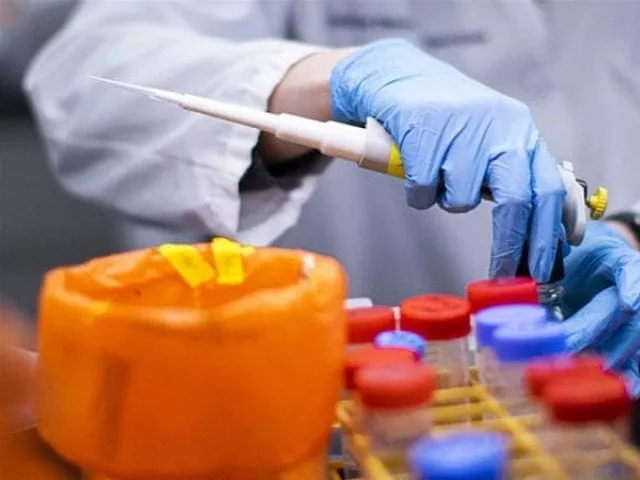Random testing falters in Karachi’s Kharadar, Kehkashan neighbourhood
Majority of residents unwilling to be tested for seroprevalence study in the two UCs
KARACHI: As the week-long pilot community testing programme in two of the city’s union councils began on Wednesday, it met with resistance from the residents of Kharadar and Kehkashan, with the majority unwilling to be tested.The health department had initiated the random seroprevalence testing in the two UCs, located in Arambagh and Civil Lines, with the assistance of experts from Aga Khan University Hospital and the Indus Hospital, to gauge the prevalence of the virus in the community.
Seroprevalence refers to the level of a pathogen in a population, as measured in blood serum. With results often presented as the percentage of total specimens tested or as the ratio of positive cases among every 100,000 persons, these studies can show how many people have been infected by the virus.
Anti-bodies kits were used for conducting the tests and those found infected were then screened through polymerase chain reaction technique.
Unregistered citizens in Karachi denied relief amid coronavirus crisis
A three-member team was deployed in each UC to conduct the tests. However, the team members said, they were unable to convince most of the people to consent to tests for themselves and their family members, as required.
“People are unwilling to get tested as it [the coronavirus] has turned out to be associated with social stigma,” an official told The Express Tribune. “It seems they are troubled if they test positive,” he explained. And when a family didn’t agree for testing, the team had little option but to approach another household, the official added.
According to another official, since the teams did not mark the houses they visited, unlike polio and census teams, they would move to a different street altogether after a few refusals.
Both the officials shared that the teams were refused by over 50 per cent of the households.
Confirming these details, South deputy commissioner Irshad Ahmed Sodhar said that a similar community testing drive was to be launched in other districts to gauge the prevalence of the virus.
He further clarified that the testing teams were not accompanied by police and could not force anyone to get tested, in line with their protocols.
Sindh governor rejects provincial govt’s Covid-19 emergency relief ordinance
Meanwhile, Yousuf Raza, a resident of Kharadar, reasoned that people in his neighbourhood were hesitant to get tested due to “insecurity.”
“We have witnessed some robberies in the past,” he explained, adding that the residents now suspected that the teams visiting their houses might be robbers impersonating health officials. “But if police personnel or [government] officials accompany them, we might allow them to carry out the test,” said Raza.
On the other hand, Suleman Patel, who is one among the few in the locality willing to get tested, said, “I will be more than happy if a team comes to my doorstep. After all, it is a matter of my own safety.”


COMMENTS
Comments are moderated and generally will be posted if they are on-topic and not abusive.
For more information, please see our Comments FAQ